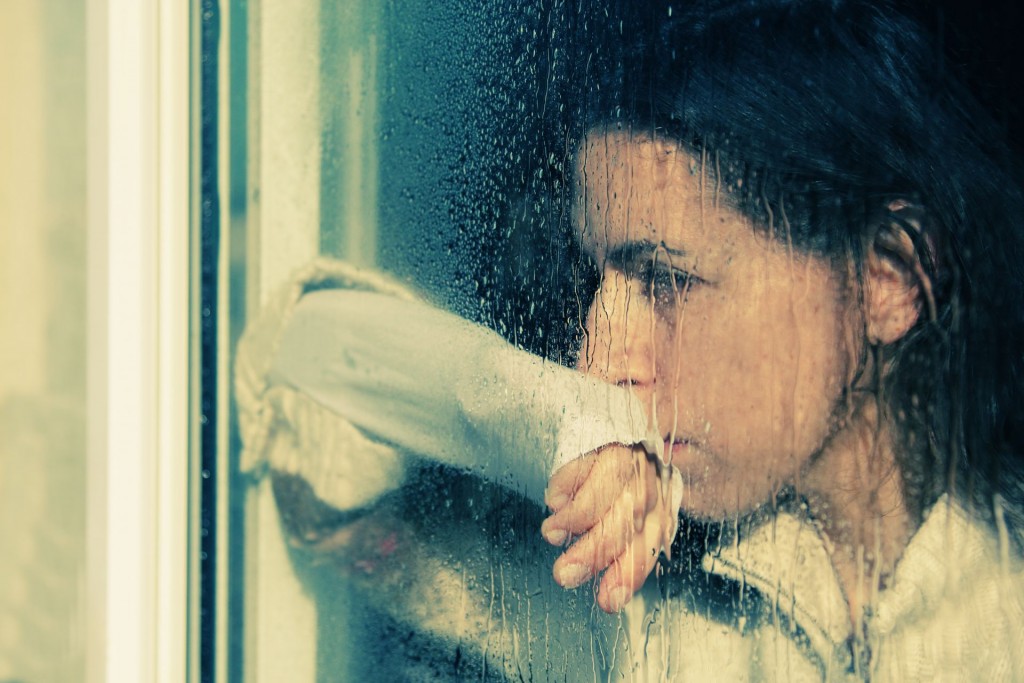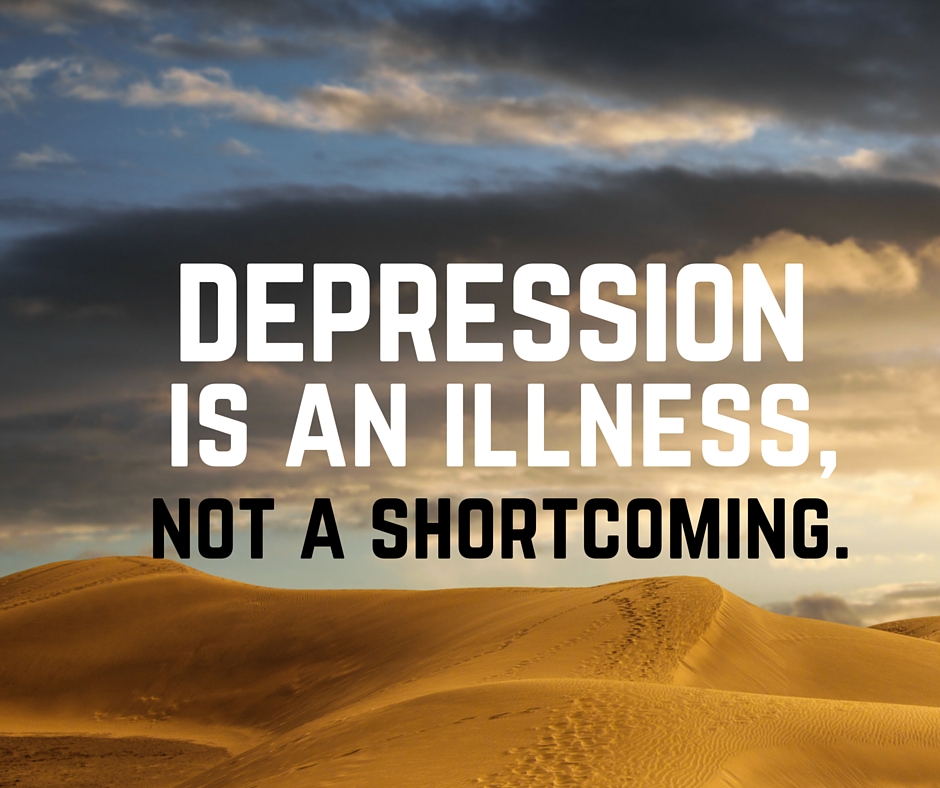In my day-to-day life, experiencing such a deep level of sadness with “no apparent reason to be sad” often creates a bizarre and frustrating monologue. When I’m feeling tired, upset or stressed, I begin blaming myself for my symptoms. “If only I were stronger, or more in shape, or less busy – maybe then I would have a better handle on things.” And then the whole cycle of self-loathing begins.
If you know what I’m talking about, repeat after me:
“Depression is an illness, not a shortcoming.”
When I first visited a therapist in college, and she told me I was experiencing depression, I remember feeling genuinely shocked at the “D” word.

No, no, no. That isn’t me. I’m the happy girl, the one with a sunny disposition. This weepy, emotional tortured soul, she isn’t me!
I rejected the notion of having a mental illness, opting instead to reinvent myself as someone stronger, bolder and wiser — someone who could wrestle happiness to the ground with an iron will. (It didn’t really work out that way…)

I graduated from the University of Arkansas in 2008 at the height of the recession. I returned to the U.S. from studying abroad with no prospects for employment, saddled with debt and resentment for “the system.” I embraced the persona of a starving artist and lived on croissants, lattes and books. One of those books was “Fierce Invalids Home from Hot Climates” by Tom Robbins. I’ll never forget the Aha! moment I had while reading this passage:
“…depression can become a habit, which, in turn, can produce a neurological imprint. Are you with me? Gradually, our brain chemistry becomes conditioned to react to negative stimuli in a particular, predictable way. One thing’ll go wrong and it’ll automatically switch on its blender and mix us that black cocktail, the ol’ doomsday daiquiri, and before we know it, we’re soused to the gills from the inside out. Once depression has become electrochemically integrated, it can be extremely difficult to philosophically or psychologically override it; by then it’s playing by physical rules, a whole different ball game. “
Fierce Invalids Home From Hot Climates, 2000 by Tom Robbins
Emotional, physical and psychological health are not only intertwined–they’re inseparable; yet most people (including those suffering from depression) don’t take into account the physical symptoms caused by the condition. It wasn’t until I accepted my depression as an illness that I was able to give myself permission to rest and heal. The best advice I’ve gotten for coping with physical symptoms of depression is “do as much as you can when you can.” Don’t beat yourself up for needing to rest or cry.
Here’s a quick video on the science of depression, proving that we are much more than sad weirdos who need attitude adjustments.
Physical Symptoms of Depression:
- Digestive problems
- Headaches
- Trouble sleeping
- Back and muscle aches
- Exhaustion and fatigue
- Appetite and weight changes
Psychological Symptoms of Depression
- Anxiety, agitation or restlessness
- Slowed thinking, speaking or body movements
- Feelings of worthlessness or guilt, fixating on past failures or blaming yourself for things that aren’t your responsibility
- Trouble thinking, concentrating, making decisions and remembering things
- Frequent or recurrent thoughts of death, suicidal thoughts, suicide attempts or suicide
- Feelings of sadness, tearfulness, emptiness or hopelessness
- Angry outbursts, irritability or frustration, even over small matters
- Loss of interest or pleasure in most or all normal activities, such as sex, hobbies or sports
Let’s keep the conversation going.
You might be thinking “Yeesh, depressed people are falling apart at the seams!”
And those of us who have been depressed are thinking, “Yep, it’s pretty rough.”
But let’s not leave it at that.
Because mental health is such an intimate topic, it can difficult to talk about. We often let emotional conversations fall through the cracks–with our families and our friends, even with ourselves. Sometimes, unraveling a problem is hard. It can take many years, experiences and relationships to heal; but having the courage to take that adventure is what counts.
If you are interested in spreading comfort and understanding this holiday season, share this message with your friends and followers.

Read Part 1 of this series here.
Blair Casey
Blair Casey is an amateur hiker, perpetual note scribbler and news junkie. She lives in Fayetteville, Arkansas, with her husband and two cats.






